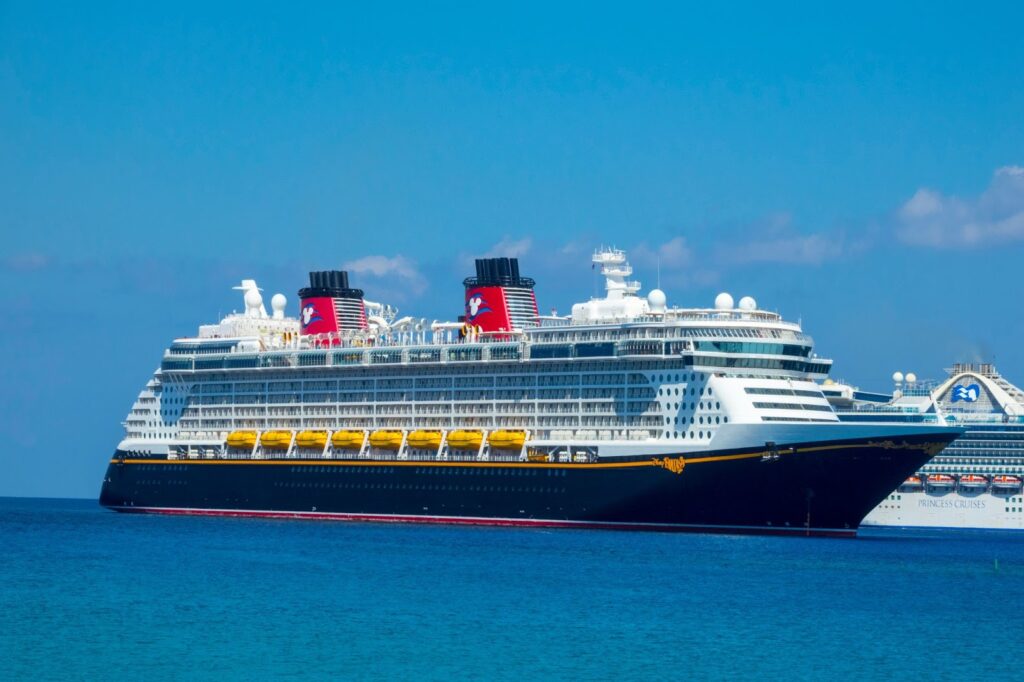Just a few days after our cruise lawyers reported a gross miscarriage of justice for the widow of a former Royal Caribbean captain, the cruise line has decided to add insult to injury by going as far as to deny the deceased seafarer became sick while sailing on one of its ships.
Sue Myhra filed a lawsuit against Royal Caribbean after her husband and former captain Tore Myhra passed away from Legionella, a bacterial disease she argued her husband acquired while sailing onboard the Liberty of the Seas in 2009.
Tore and Sue, who met while working for Royal Caribbean in the 1980s, fell in love and were married soon thereafter. Sadly, little did the couple know that the cruise line both of them were so faithful to would be the same cruise line that would tear them apart forever.
Tore Myhra, a Norwegian-born seafarer, had been the master of several Royal Caribbean cruise ships throughout the years resigning in 1999. Lauded for his sincere care and commitment to passengers and fellow crew members, Myhra has made headlines several times for going above and beyond the call of duty to ensure everyone onboard his vessels was safe from harm. He was even commended in 1998 for his decision to sail into harbor at night so a sick passenger could receive emergency medical treatment.
Myhra certainly gave cruise lines a good name, but his reputation would not be something Royal would honor.
When Myhra, his wife and daughter set sail on a cruise vacation onboard the Liberty of the Seas in 2009, he became suddenly and seriously ill about five days into the itinerary. But instead of providing him with the same care he had bestowed other cruise travelers when he was captain, Royal did nothing to help Myhra in his time of need. The cruise line refused to have him evacuated from the vessel and kept him onboard until the end of the itinerary.
Once the ship docked in Miami on Nov. 1, Myhra was rushed to a local hospital but he did not make it through the night. The cause of death was determined to be Legionella pneumophila pneumonia, a grave but treatable condition. Had Myhra been airlifted from the vessel upon first exhibiting symptoms of the illness, he might still be alive today. His death was the direct result of delayed treatment, and Sue Myhra has spent the past four years fighting on behalf of her husband, trying to hold the cruise line responsible for their negligence in getting her husband the medical attention he needed.
In her lawsuit, Sue Myhra included a CDC report that revealed another passenger sailing on a September 2009 itinerary on the same vessel also became ill with Legionella and died as a result of the illness. Legionella favors moist environments and unlike other infections, such as the infamous “Cruise Virus” aka Norovirus, its transmission is airborne and cannot be transmitted from person-to-person contact.
Legionella usually dwells within water supplies, such as a cruise ship pool or hot water system. And as the lawsuit pointed out, Royal Caribbean failed to properly maintain its on-deck water system at the time of the two cruise voyages in question, an act of negligence that would have created the ideal breeding grounds for the bacteria to develop.
Sue Myhra brought the lawsuit in Miami, where all lawsuits against Royal are filed. Unfortunately, the case would not end well for the family.
Royal Caribbean exploited its passenger contract, and fought to have the case dismissed over the “forum selection clause,” which specifies that because Sue Myhra booked the cruise through a UK-based travel agency called 1st4Cruising, the case should be brought in the UK, not in the U.S.
Myhra’s lawyers argued that the unfair fine print was not explained to her at the time of booking, but even if they had been, because the UK adopted the Athens Convention, which declares that a cruise line is liable for limited damages if a passenger is involved in an incident or suffers a loss while on the itinerary and due to the line’s fault or negligence, the clause violated 46 U.S.C. section 30509(a).
The 46 U.S.C. section 30509(a) prohibits cruise companies that travel between ports in the U.S. or between the U.S. and a port in a foreign country from including a clause in their passenger ticket contract which limits their liability. In trying to have the case moved to the UK, Royal would be limiting its exposure because the Athens Convention sets a cruise line’s liability at 46,666 Special Drawing Rights (SDR) per carriage, or a maximum of approximately $75,000, in the event of a cruise passenger death.
However, the court held that 46 U.S.C. section 30509(a) was not violated because Royal wasn’t the one trying to limit its liability, but rather, it was the UK itself which provided limited damages, and by transferring the case to the UK, no violation occurred.
Now, to add insult to injury, Royal claims Myhra did not contract Legionella onboard the Liberty of the Seas.
According to Royal, the ship tested negative for Legionella before, during and after the itinerary the Myhra family was on.
“Mr. Myhra reported to the ship’s doctor with flu-like symptoms and received appropriate medical treatment for Legionella. Sadly, he died shortly after his illness was reported,” read the statement. “Royal Caribbean is certain that Mr. Myhra did not contract Legionella while sailing on board Liberty of the Seas.”
The statement went on to claim that “All Royal Caribbean ships have systems and procedures in place to monitor for Legionella, in accordance with strict legal requirements. As is standard, water tests carried out throughout the cruise by Royal Caribbean, as well as by independent experts, were all negative for Legionella and other pathogens tested.”
Royal claims the vessel was inspected by the CDC, who reported the ship as negative for Legionella. But the CDC also filed the report regarding the other passenger who contracted Legionella on the same ship and died as a result. The two passengers had no connection to each other, aside from the vessel they had both traveled on. Both developed Legionella symptoms onboard the cruise. And according to the CDC, the incubation period for the bacteria is 2-14 days after exposure. Myhra became sick on the fifth day of the cruise – meaning there was more than enough time for him to have gotten ill on the ship.
Ironically, in the midst of Sue Myhra filing the original lawsuit, Royal’s president, Adam Goldstein, was busy earning over $12 million in 2010. Yet, Royal, a multimillion-dollar company itself, deemed it was not necessary to bestow at least some semblance of justice upon the deceased captain that had devoted so many years to the line’s service.
An inquest into Myhra’s death is scheduled for May 14, but at this point, it’s not surprising that a cruise company would go as far as to deny its beloved former captain of the damages his family deserves.
Sue Myhra is now moving forward with the lawsuit in the UK, and hopefully she will find some peace after the years she has spent battling the cruise line. Sadly, this isn’t the only cruise passenger case in which a victim has been denied their rightful benefits because a cruise company was able to exploit legal loopholes in its cruise ticket contract.
Yet, while Myhra’s case was an example of a miscarriage of justice, this incident should not discourage other cruise victims from obtaining help with a cruise lawyer for their pain and suffering. There are many times in which victims obtain the damages they rightfully deserve, with cruise lines being ordered to pay significant and substantial compensation. Cruise companies must use reasonable care to ensure the well-being and safety of everyone onboard their vessels, and when that safety is compromised, lines can be held accountable. Passengers and crew members should never give up their legal right to file a claim because more often than not, justice is done, and the victim obtains a successful recovery.
Photo Credit: Former cruise ship captain Tore Myhra – bbc.co.uk
Published on April 30, 2013
Categories: Cruise Ship Law, Maritime Wrongful Death, Royal Caribbean Cruises
Get Free
Consultation













